

A-Z Artist Index Compilations Record Labels Media
Help Us! Contact Us Resources Timeline


Bio:
Dickie Rock is a crooner with a strong following in Ireland. His reputation was
built during his years fronting The Miami Showband from 1962-1972.
Some decent Rock & Roll recordings were made in the early years.
A self-confessed admirer of Frank Sinatra, his recordings since the mid-70s
have been in a vein similiar to his idol, from big band standards to easy listening pop. His
career potential was limited arguably by his unwillingness to move abroad. Some say he
had the potential for international stardom, that he was one of those people with 'presence' who
could have been a big star.
Richard Rock - the family name is German in origin - was born in Cabra in Dublin in 1940.
He sang as a boy soprano in church and loved early Rock & Roll, but he remained quiet and family oriented,
and neither smoked nor drank. He also professed a love of crooners like Frank Sinatra and
Tony Bennett.
In 1959, while still working as an apprentice welder, he joined The Melochords,
a local Rock & Roll group, replacing Butch Moore who had departed for the
Capitol Showband. The Melochords included Brendan O'Connell on guitar and Gerry Hayes on piano and
accordion. They were well regarded at the time. They played regular gigs at
The Ritz in Ballyfermot and the Carlton Hall in Marino. In 1960 they played the Olympic Ballroom in Dublin for the first time,
a major step up in venue. This should have heralded their entry into the 'bigtime', but instead their career
stalled: the lucrative ballroom circuit was sewn up tight by the showband managers and promoters at that time,
and The Melochords - like so many other pop, beat and rock & roll
groups - could not progress further. Rock & Roll groups were simply not
considered a bankable proposition by the larger venue
owners.
This glass ceiling of earning potential led to The Melochords split in 1961: those who wanted
to pursue the showband option eventually became The Cadets, with lead singer Eileen Reed.
The Cadets became hugely successful in Ireland (and the UK to some extent) during the '60s but time
has not been kind to their recordings, and Eileen Reid's voice seems better suited to sentimental
country & western ballads - it is not a 60s pop voice.
The rest of The Melochords became
Richard Rock & The Echoes.
Richard Rock & The Echoes continued to carry the torch for Rock & Roll. They entered
RTE Television's "Search For A TV Star" variety show and finished third. Their big break came
in 1961 when they supported Cliff Richard & The Shadows at the National Stadium. They were offered a
contract by Phil Solomon but it required they relocate to the UK which they were unwilling to do (a lucky escape, in hindsight!).
Rock's profile had risen considerably since his debut in 1959 and he regularly received offers of work.
Finally, unhappy with lack of progress with The Echoes, Rock accepted the invitation to audition for
The Miami Showband in 1962. The Miami needed to replace singer Jimmy Harte who was emigrating
to the USA. They had a regular gig at the Palm Beach club in Portmarnock, which meant regular pay.
When Richard Rock
joined them circa April 1962, he became Dickie Rock, and his years with The Miami were what established his lasting
reputation in Ireland.
The Miami Showband had formed a year earlier in 1961. They were well organised and had good management. In a business which
tended to penny pinch and cut corners, the Miami made a point of expecting and demanding the best. They were
led by Joe Tyrell (keyboards). The rest of the lineup (ca 1962) was Tony Bogan (drums), Dennis Murray (bass),
Clem Quinn (guitar), Murty Quinn (trombone), Tommy O'Rourke (trumpet) and Martin Phelan (sax). Over the next
couple of years the band built a strong reputation. Their first single was recorded in November 1963 and it was
#1 by January 1964. It stayed on the top spot for 6 weeks. Many more hits followed throughout the '60s, including
several number ones, and including the first ever single to enter the Irish charts at #1, "Every Step Of The Way".
The Miami became one of the top showbands in Ireland.
In 1966 Dickie Rock represented Ireland in the Eurovision song contest with "Come Back To Stay",
finishing fourth. There was a spate of
continental releases from this period, many with picture sleeves. The same year he was the subject of a
documentry filmed by RTE "Portrait Of An Artist".
Unsatisfied with the level of remuneration given his status as 'the star' (a constant theme in Rock's autobiography),
Rock requested a pay
increase from the Miami management. This request was granted, which put Rock on a different financial footing
from the rest of the group. Inevitably this led to discontent.
While Rock was appearing at the Sopot International
Song Contest in Poland in 1967, most of the band announced their intention to leave and set up their
own band, The Sands.
Thus the highly successful '60s lineup of The Miami split with only
Tyrell and Bogan, both Miami directors, remaining. Clem Quinn later changed his mind
and chose to stay. The rest of the vacancies were filled by Paul Ashford (bass),
Fran O'Toole (keyboards), Brian McCoy (trumpet), Des McAlea (sax) and Pat McCarthy (trombone),
many recruited from the ranks of various Dublin beat groups.
Rock spent five more highly successful years fronting The Miami, but money remained a constant source of disgruntlement.
He never felt sufficiently rewarded for his efforts.
During his years with the Miami, Pye released records credit to The Miami, Dickie Rock & The Miami,
Dickie Rock and even Dickie Roc. I consider all of these to be Miami singles. Rock also released bona fide
solo singles on United Artists Records.
Dickie Rock
left The Miami in Sept 1972 for a solo career, eventually moving over to the cabaret circuit.
He continued to perform, occasionally record, and work on his tan at his villa in Spain for the next 30+ years.
His solo recordings consist of standards, ballads, and covers of the pop hits of the day for the most part, and are of
little or no interest.
Anyone wishing to know more about Rock's subsequent career is directed to his autobiography Always Me, published in 2007.
In it he mentions winning the Golden Stag Festival in Brasov,
Romania in March 1971, but my research shows he finished in joint fourth place, though he may have won a particular
category. He appears on the LP commemorating the event (see below). His autobiography also mentions that
while he was in Romania his brother Brian Rock (who fronted
The Hustlers) filled in for him
with The Miami during his absence. This is the only mention of Brian & The Hustlers in the
entire book.
The discography below excludes all recordings made with The Miami which will be listed elsewhere.
A number of Miami era singles were strictly speaking solo releases and should, strictly speaking, be listed here.
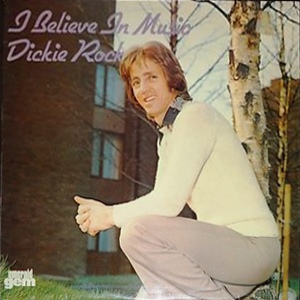
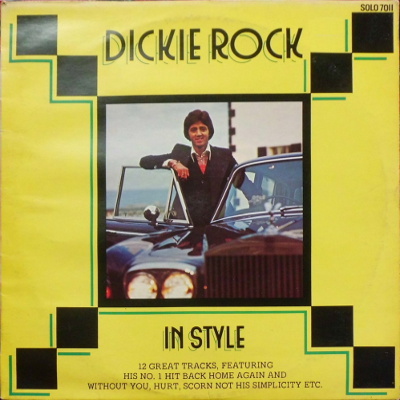
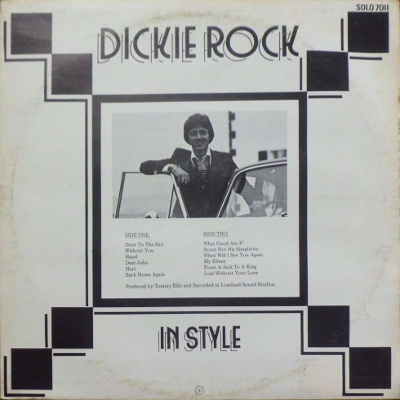
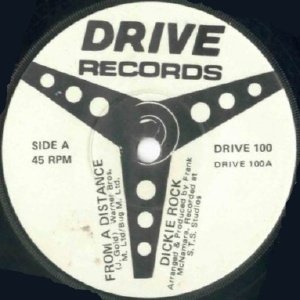
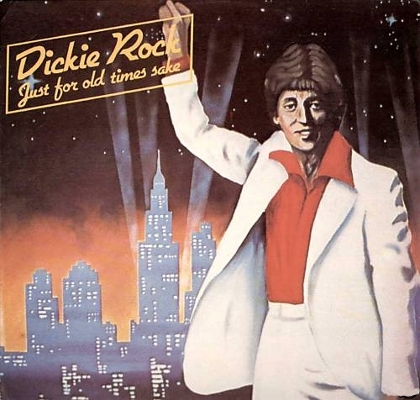
Help!: We need your help to complete this entry. If you can tell us more about this band then please do! We welcome any corrections, missing details, connections to other bands, where are they now, etc. We also need photos, scans, copies of releases or live or demo recordings, and any other memorabilia gathering dust in the attic. If you can help, then please get in touch.
